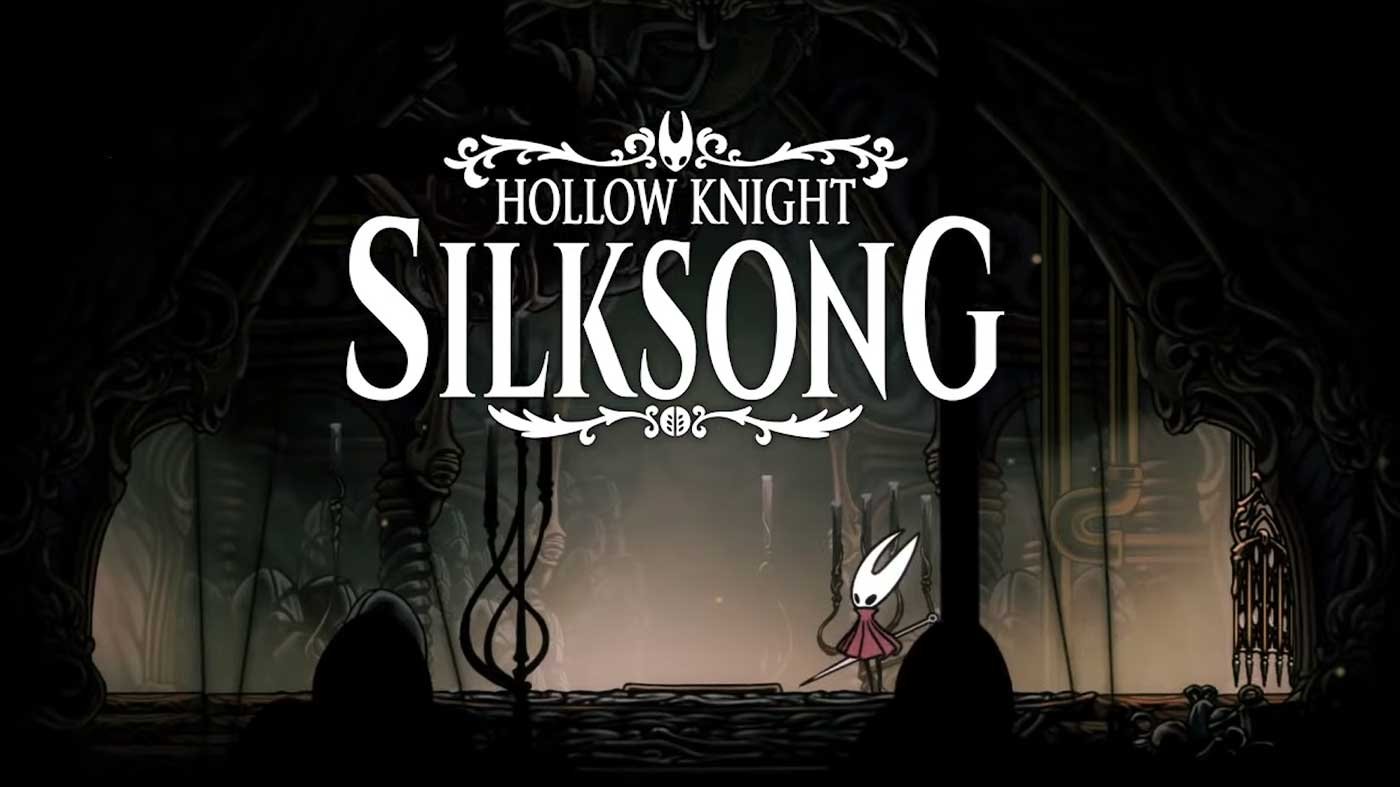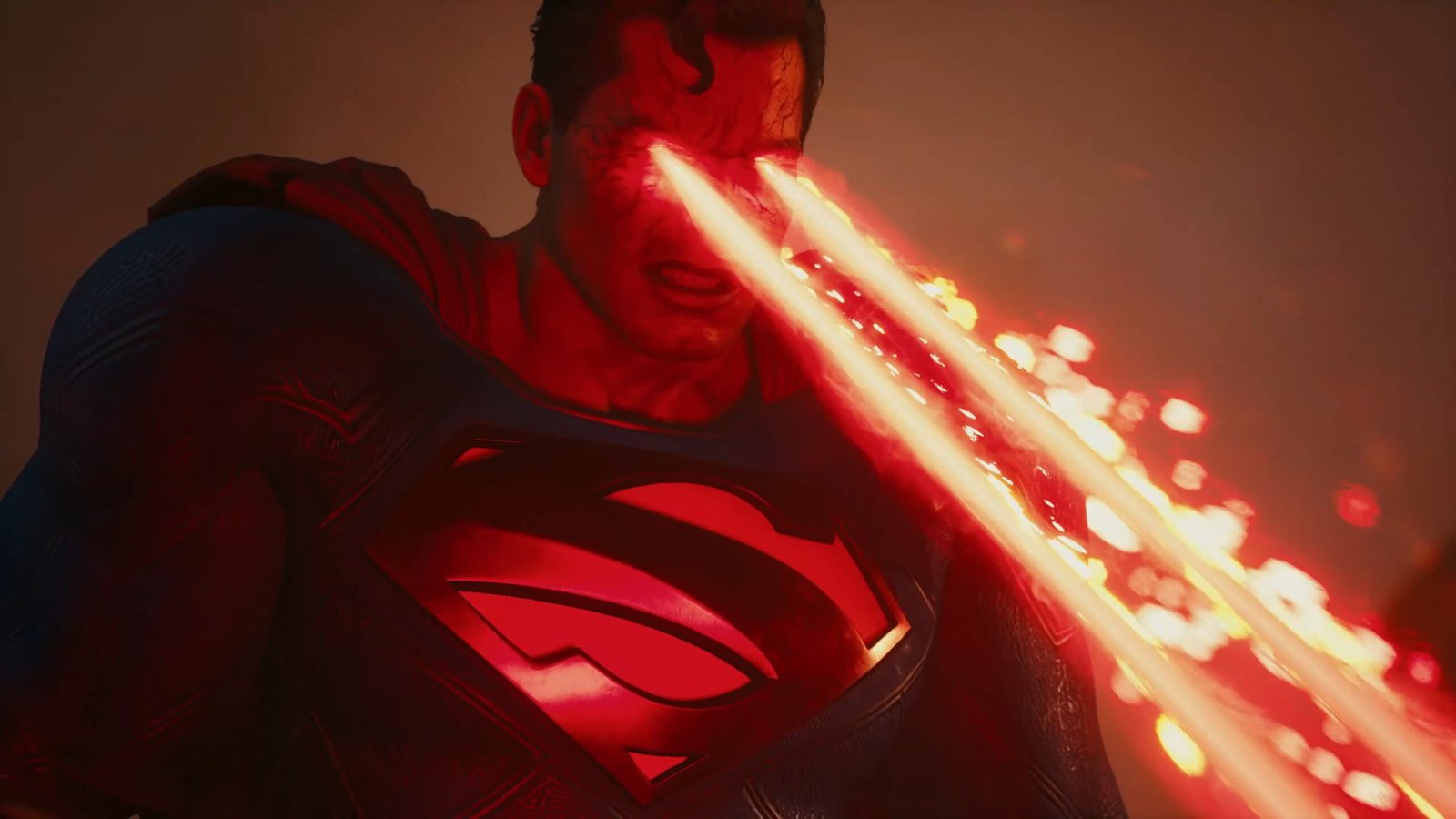Gladiator Review – History’s Cinematic Echo
Emphasizing brawn over brain and spectacle over intimacy, Ridley Scott’s Gladiator nevertheless is an impressive accomplishment in its re-creation not only of the golden age of the Roman Empire but it’s horrific side as well.
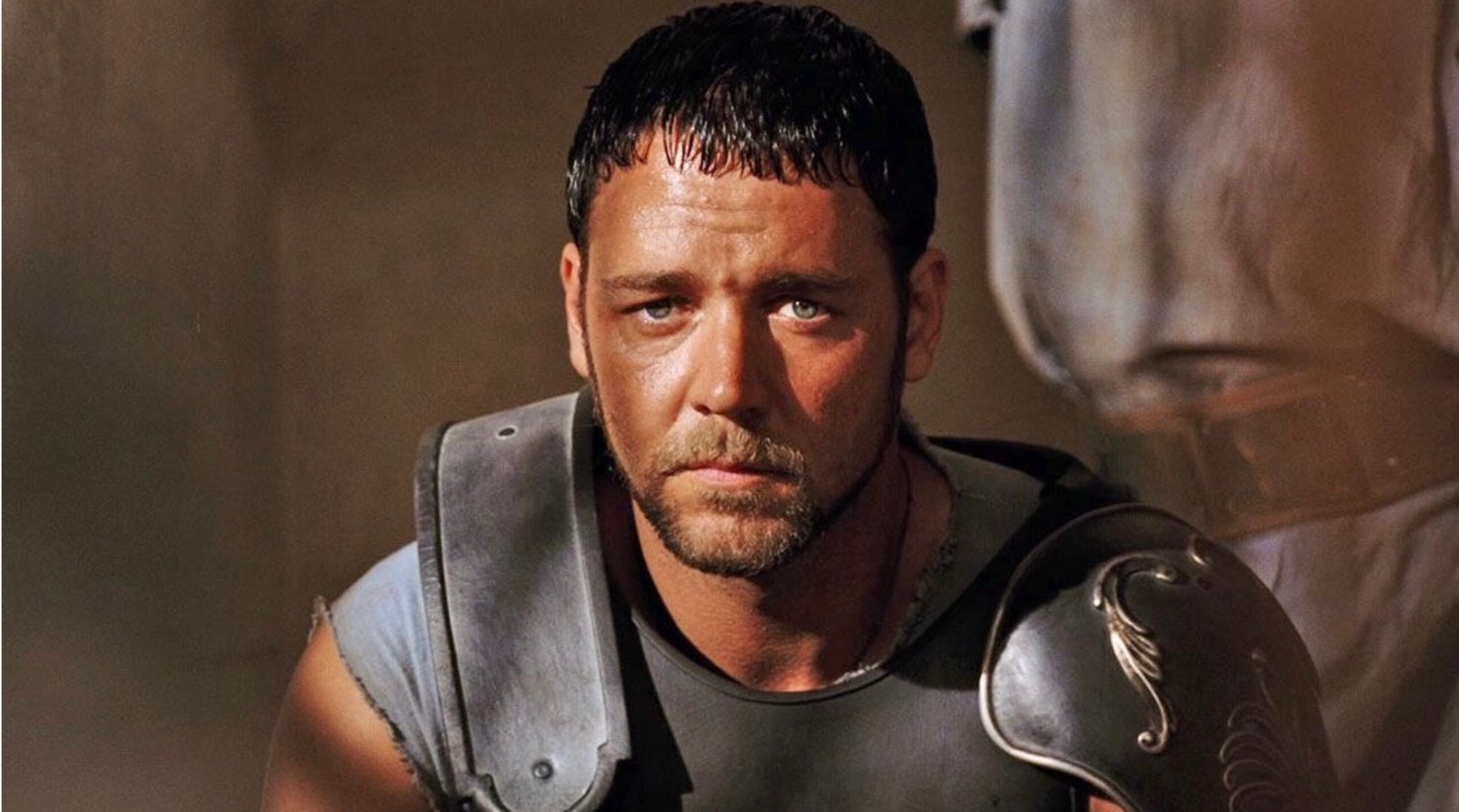
Film: Gladiator
Director: Ridley Scott
Running Time: 155 Minutes
Release Date: May 1, 2000
Maturity Rating: 16+ (Violence)
Ridley Scott, born on November 30, 1937, in England, is a renowned film director and producer. One of the most promising directors of the late ’70s, Ridley Scott displays stylistic flair and remarkable storytelling abilities. His career showcases a noteworthy ability to tackle various genres while maintaining a distinct visual style.
Apart from this, Scott is often praised for his visually stunning and immersive storytelling, with a keen focus on creating atmospheric and visually striking films. His meticulous attention to detail and ability to craft memorable cinematic worlds contribute to his reputation as a masterful director.
Gladiator – Review
Like its hero Maximus – the squinting, beefy, unassuming, indomitable Roman general, Ridley Scott’s film Gladiator is brave, impressive, ambitious, confident, competent, and commanding. Maximus’ story is epic in scope and expertly told.
Ancient Rome is thriving. After General Maximus leads the Roman legions to victory in their final battle against the Germanic tribes, he longs for nothing more than to return to his wife and son and farm in Spain.
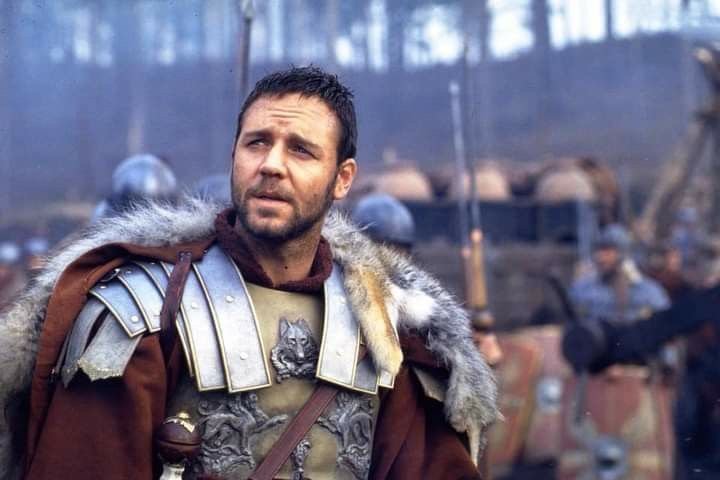
Nevertheless, Emperor Marcus Aurelius had other plans. Knowing that Maximus holds the utmost loyalty to him and Rome — and not trusting his son and heir apparent, Commodus — the ageing emperor asks Maximus to succeed him on the throne.
Eventually, the world Maximus inhabits is convincingly realised and vividly photographed. His enemy is unsettlingly dissolute and depraved; his defeats and setbacks are tragic and daunting; his struggle to overcome is heroic.
Starring Russel Crowe, Joaquin Phoenix, Connie Nielsen and Derek Jacobi, the movie comprises powerful acting and immaculate cinematography that will leave you inspired and emotional simultaneously.
Setting/Theme
Gladiator is an epic tale, most of which is pure fiction. Furthermore, it transports you to the epic tapestry of ancient Rome, where the Colosseum symbolises grandeur and a brutal arena of life and death.
Undoubtedly, the main themes in Gladiator are duty and honour, family, loyalty, and revenge. The film paints a vivid tableau of a bygone era, where the crowd’s roar echoes through history’s corridors. The Roman setting becomes a character in itself.
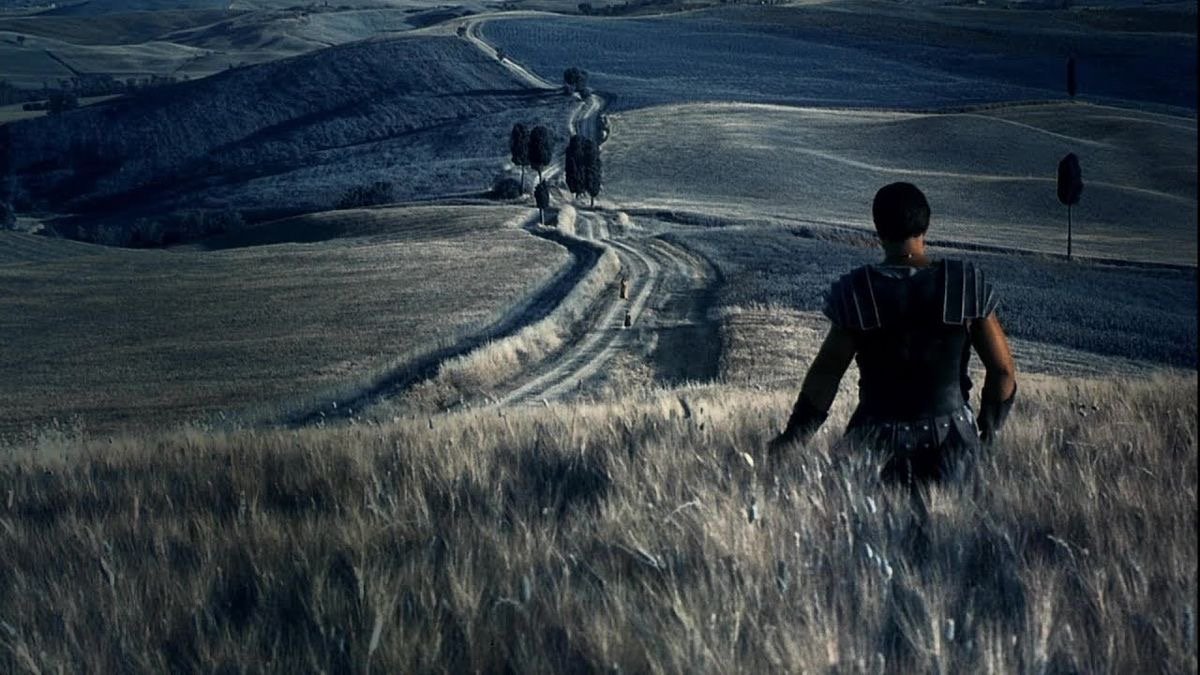
Themes of loyalty and betrayal unfold in the shadow of towering structures. At the same time, the arena becomes a stage where not only gladiatorial combat occurs but also a symbolic battlefield for the characters’ internal struggles.
Character Portrayal
Maximus (Crowe) is the protagonist of the film. He experiences profound personal loss, which fuels his quest for vengeance, but his character is more than just a vengeful warrior. He embodies resilience, leadership, and a moral compass that stands out in the morally complex world of ancient Rome.
Moreover, he was very engaging as a hero. His tragedies, his struggle and his war all aimed at wanting a chance to fight against the evil that caused his life pain and agony.
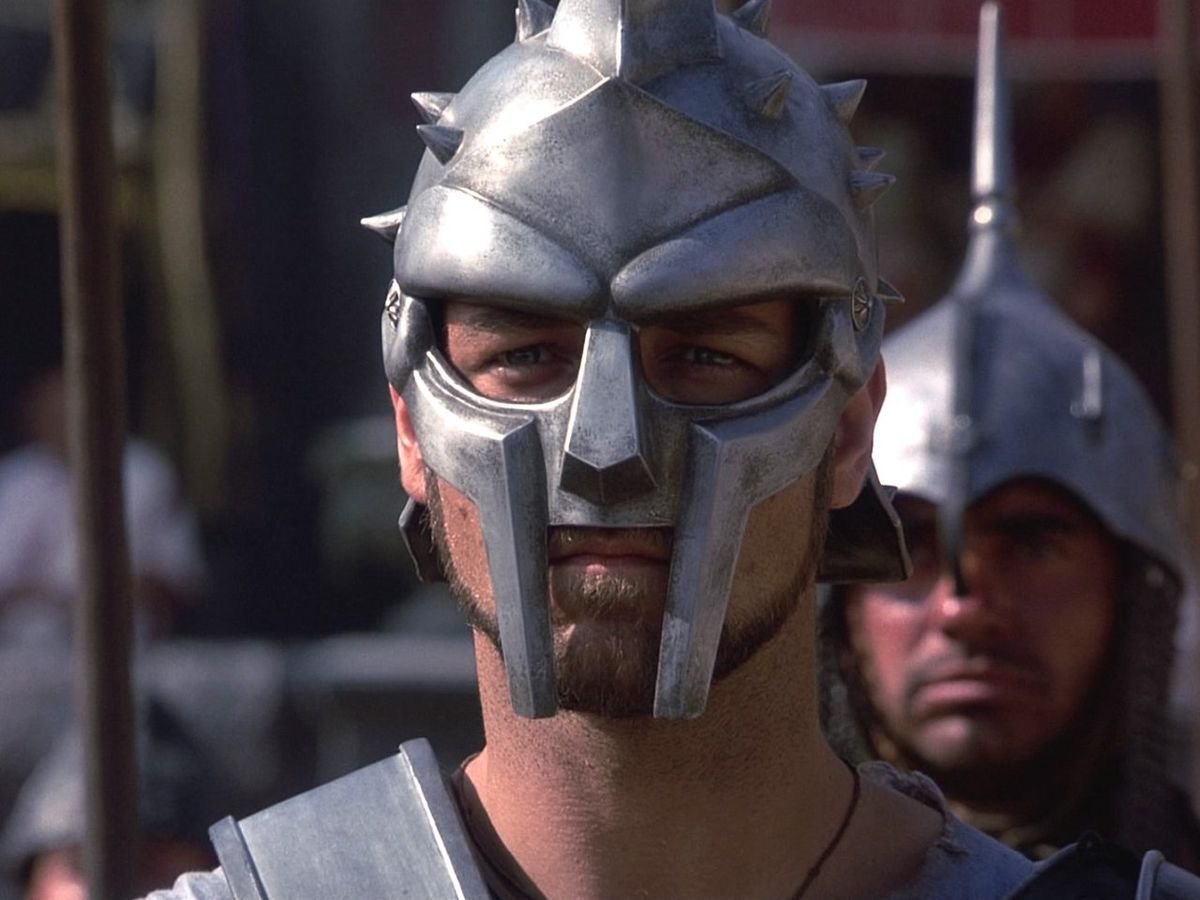
Nevertheless, most of what we see on the screen mirrors the emotions that fuel our passions.
Like Maximus, we have all lost something precious at one time or another and know the impulse to seek revenge. Similarly, we would rather ignore the messy world of politics in favour of the warmth of familial love. Like Marcus Aurelius, we have tried to do the right thing but often place enormous burdens on the shoulders of those closest to us.
However, no film is complete without a great villain at its core. Some villains are intimidating. Others are intelligent. Then there’s the downright despicable lot, and Joaquin Phoenix is one of the best.
Commodus (played by Phoenix) fits squarely within that distinction. He’s not brave or strong. He’s the worst type of person. There isn’t a single redeeming quality about him, and that’s why he’s so great. Every word he says is filled with an unfathomable amount of hate. His envy and viciousness leave the audience disgusted and stunned.
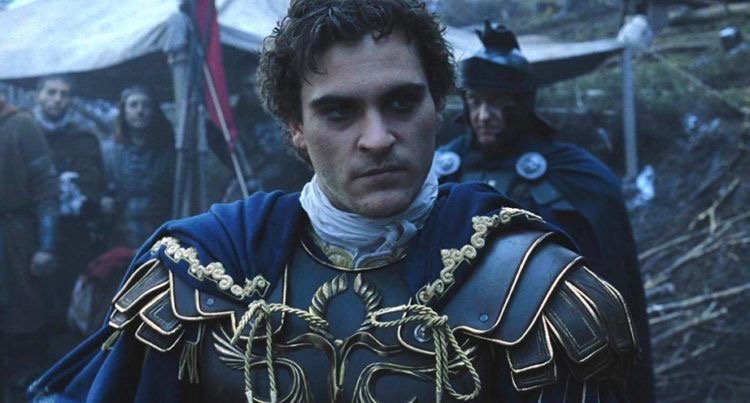
Cinematography
Many cinematographic effects were used to distinguish Maximus’ character. Maximus starts the film with a well-lit face and a grim expression. This shows that Maximus is the main subject. Contrasting the light on Maximus, the colours of Germania are cold and dark.
The film’s colour palette, rich and earthy, evokes the texture of history, while the use of light and shadow creates a dramatic interplay. In addition, this emphasises the contrast between the luxury of the Roman elite and the grit of the Colosseum.
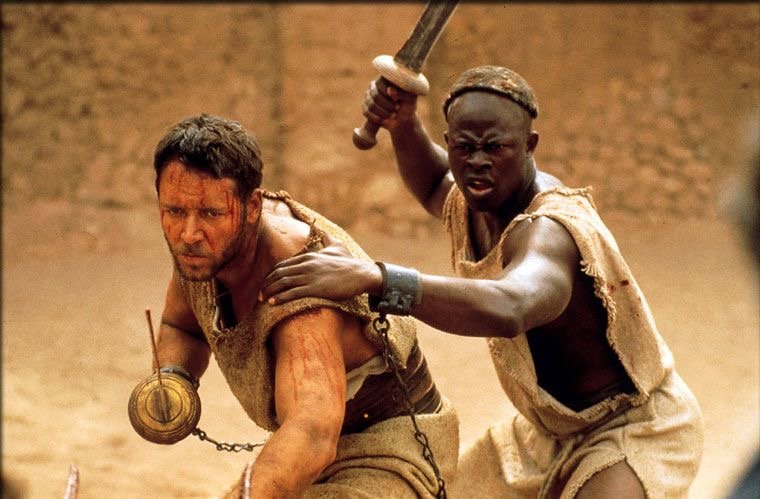
Also, Hans Zimmer’s use of orchestral arrangements, choirs, and distinctive instrumentation contributes to the film’s immersive atmosphere, making the music an integral part of the storytelling in “Gladiator.”
Message (Spoiler Alert)
“Life isn’t fair, but that’s not what matters.” Maximus’ life is the epitome of this. He had unfair things happen to him for his entire life. His family was murdered. He ended up an enslaved person for being loyal to Rome. And here he was with a poisonous knife wound just before the battle with the man who ruined his life. He did the only thing he could – battled against Commodus and killed him to end his rule over Rome. He died a hero.
“What we do in life echoes in eternity.”
~Maximus (Gladiator)
Summary
In conclusion, this film is an eternal classic, a movie meant to be remembered for years. The gladiatorial contests are tense, dynamic and brutal, to be sure, and probably no less or more violent than most viewers would want them to be. The film revels in both the glory and the horror that were Rome. I find the movie extraordinarily engaging and valuable; it’s a must-watch gem if you’re a fan of cinema and history.
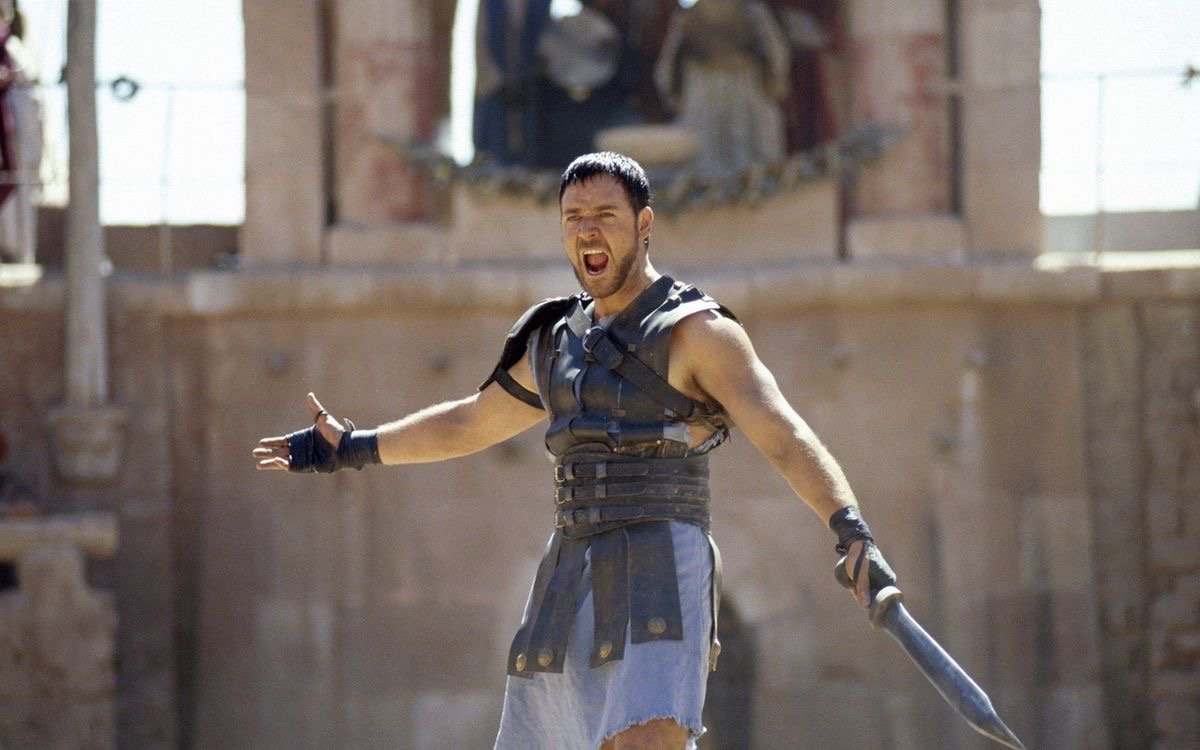
Rating: 9/10
Pros:
- Historical Ambiance
- Stunning Cinematography
- Gripping Storytelling
- Iconic quotes
Cons:
- Violence Intensity
- Stereotypical Characters
Read More By Us:
The Pursuit Of Happyness Review – Happyness With A Y



